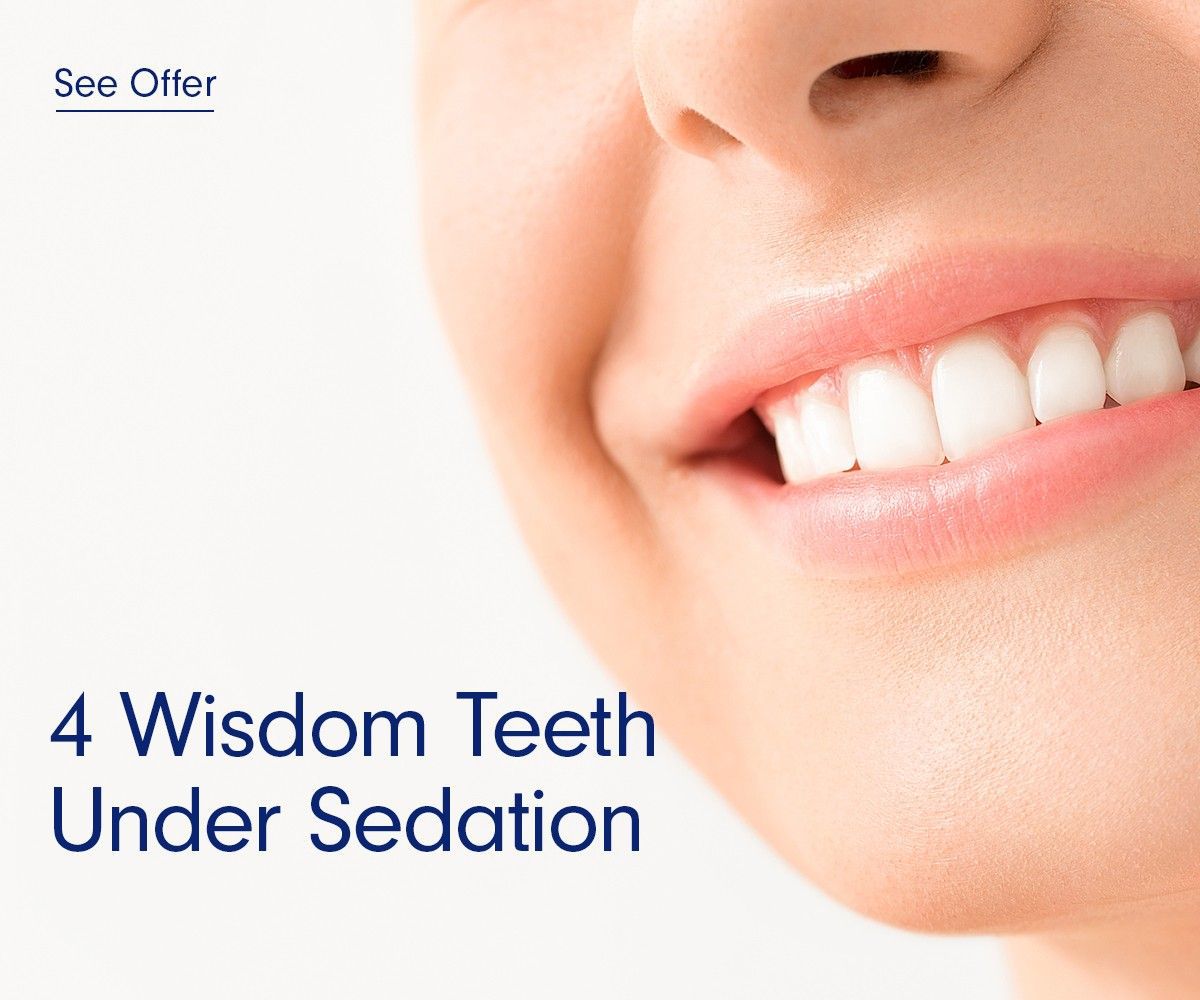
Effective healthcare includes regular dental care, but dental care remains a common source of anxiety. Up to 80% of people have dental anxiety. While some have mild dental anxiety, this phobia can cause those with severe anxiety to avoid scheduling dental visits or miss appointments.
A lot of dental changes happen between the ages of one and thirteen, and by the time people reach their early teens, almost all their permanent teeth have erupted. That’s one reason the arrival of wisdom teeth, which usually occurs before age 21, makes many ask if removing their wisdom teeth is necessary and, if it is, how they can stay calm during tooth extraction.
Reasons For Wisdom Teeth Extraction
Some people do not need their wisdom teeth removed because they have enough room for their third molars to erupt without damaging other teeth. However, wisdom teeth need to come out when they threaten your other teeth. In these situations, wisdom teeth extractions protect your teeth, gums, and jaw from severe issues, including the following:
- Impacted wisdom teeth: When your third molars get trapped in your gums or jaw, they’re impacted. This means they can’t erupt safely and must be removed. Leaving them trapped can be painful and cause infections.
- Infections: Tooth infections can spread to your gum tissue and other teeth. Dental infections can spread throughout your body without proper treatment, causing severe health issues. For example, the infection can cause sepsis if it enters your bloodstream.
- Moving teeth: Your wisdom teeth can push neighboring teeth, causing them to loosen and change their alignment
Is Wisdom Tooth Extraction Painful?
Fear of pain from dental procedures is a common source of dental anxiety. Your dentist will use dental care resources to help calm your nerves and deliver expert care to minimize discomfort during wisdom teeth extraction. You can choose between sedation and anesthesia when your wisdom teeth are removed. Your dentist can answer questions about these options and the benefits of each.
Whether you choose sedation or anesthesia, there’s no reason to have anxiety about experiencing pain during the procedure. Both options numb your mouth so you won’t feel physical pain when your teeth are extracted.
Why Should I Consider Dental Sedation?
Dental sedation may be the most effective way to prevent pain during your wisdom teeth extraction for several reasons.
Prevent anxiety
Dental sedation prevents physical pain during dental procedures and alleviates anxiety. It’s an effective way to help patients stay calm and relaxed while receiving dental care.
Fewer side effects
Sedation also has fewer side effects than general anesthesia. Common side effects of sedation include the following:
- Dizziness
- Dry mouth
- Headaches
- Nausea
Sedation can make you loopy, but it wears off faster than general anesthesia. You should plan to wait about 24 hours before you can drive to ensure the sedative is out of your system.
The potential side effects from anesthesia during your wisdom teeth extraction are more extensive and include the following:
- Dizziness
- Dry mouth
- Fatigue
- Hallucinations
- Headaches
- Lockjaw
- Nausea
- Numbness
- Shivering
- Slurred speech
- Sore muscles
- Sweating
- Vomiting
A common question is whether anesthesia can make you loopy. You may feel disoriented and confused after undergoing a procedure using general anesthesia. In some cases, these symptoms can last more than 24 hours. You should plan to wait up to two days before you can drive after general anesthesia.
Convenience and efficiency
Sedation dentistry is available at our Las Vegas, Reno, and other Absolute Dental offices throughout Nevada. You don’t have to worry about visiting a different location if you opt for sedation dentistry.
Best of all, we can focus on removing your teeth because sedation helps you stay relaxed during the procedure. The procedure will go faster since we don’t have to address your anxiety. You’ll get to go home sooner and start your recovery as soon as possible.
Are There Different Types Of Sedation?
There are several sedation options your dentist can use. The best sedation option for you will depend on your level of dental anxiety. It’s possible to eliminate pain and anxiety with minimal sedation. Dentists favor this option because it allows communication during the procedure and reduces the potential side effects you’ll experience from sedation. However, patients with severe dental anxiety may need deep sedation.
Methods Of Sedation
Your dentist will give you an approved sedative to deliver the level of desired sedation during your wisdom teeth extraction.
Halcion
Halcion is also called Triazolam. You receive Halcion by taking a pill. It’s a short-lasting sedative that wears off in a few hours and is ideal for mild sedation.
Intravenous (IV)
Sedatives delivered through an IV are fast-acting because they go straight to your bloodstream. It’s used for deeper sedation, although you’ll be semi-conscious.
Nitrous Oxide
Patients receiving nitrous oxide have an oxygen mask placed over their nose and mouth. They inhale the sedative. Nitrous oxide has the benefits of being easy to administer and fast-acting, making it a popular option.
Is Sedation Necessary For Wisdom Teeth Extractions?
You will need something to prevent pain during your wisdom teeth extractions. A local anesthetic is an option, but it only prevents physical pain. You’ll likely need something that will keep you calm if you are anxious about dental procedures.
You must discuss your needs with your dentist before your procedure. Since it can take seven to 14 days to recover from your wisdom teeth extractions fully, you don’t want to plan for the procedure and be unable to complete it because of anxiety. Your dentist wants you to receive adequate treatment without pain, stress, or complications, and understanding your needs can help your dentist prepare the best treatment plan for you.
How Do I Know It’s Time To See My Dentist About My Wisdom Teeth?
Your wisdom teeth can cause several symptoms when impacted or ready to erupt. Symptoms include the following:
- Bad breath
- Fever
- Inflamed gums
- Pain
- Pus
- Swollen face
- Swollen lymph nodes
- Trouble swallowing
Your dentist can order X-rays to confirm if your wisdom teeth are impacted or if they have enough space to erupt safely.
Wisdom Teeth Extraction With Absolute Dental
Understanding why you may need your wisdom teeth removed and how to stay calm during the procedure can put your mind at ease when it’s time to get your wisdom teeth out and help you make informed decisions to receive prompt dental care.
Sources:
Teeth development in children. (2023).
White, A. et al. (2017). The Prevalence of Dental Anxiety in Dental Practice Settings.
Whitlock, J. (2021). Driving After Surgery or Anesthesia.


Regular Price:
$2100
There’s no need to wait until they become a problem individually. Take advantage of our limited time offer and get all four wisdom teeth removed at once, under sedation for only $1,299.
